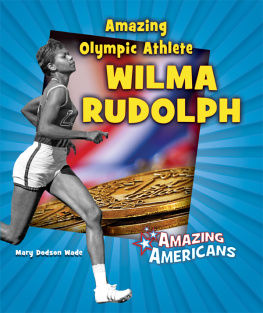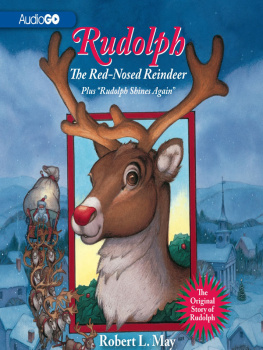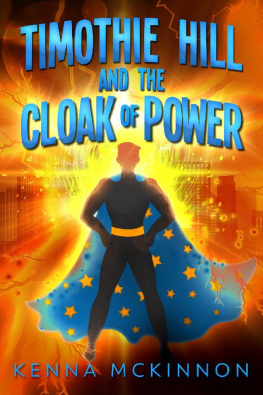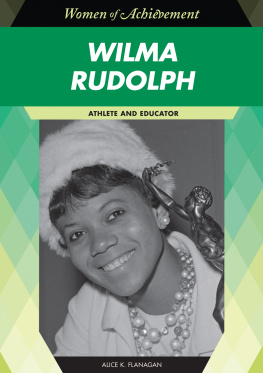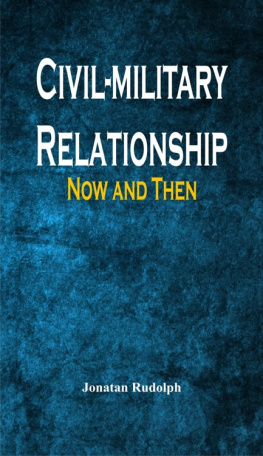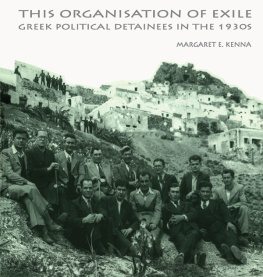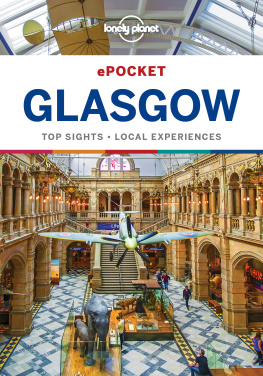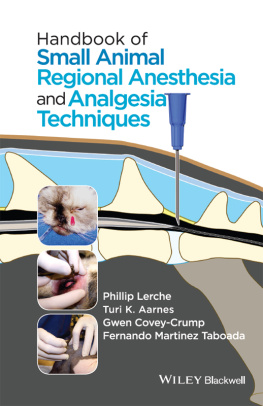Introduction
A lthough there have been many books on Glasgow, little attention has been paid to the ordinary men, women and children of the dear green place. In these pages we attempt to set the record straight.
In Part One we look at the city between 1751 and 1913, during which Glasgow experienced one of the most astonishing population explosions in history, fuelled during the great age of expansion by Highland migration and Irish immigration. Eighteenth-century Glasgow wasnt only a town of tobacco lords, haughty Virginia traders whose wives and daughters took elocution lessons and learned to play the guitar in good taste. It was also a town of servants, beggars, whores, and thieves the latter living precariously on their wits and risking draconian retribution in the form of floggings, banishment or capital punishment. Similarly Victorian Glasgow wasnt only a city of prosperous captains of industry, but also one where children slept rough and stole to obtain the bare necessities of existence a place where whole families begged in the streets and many unfortunates sought oblivion in opiates or alcohol. The slums were honeycombed with brothels, shebeens, and wee pawns where child-strippers disposed of clothes stolen from infants and small children.
In Part Two we look at the city between 1914 and 1945 tumultuous years when Glaswegians won medals, marched against unemployment and the Means Test, fought greedy landlords, befriended refugees from Nazi oppression and rescued fellow citizens from blitzed tenements. (They also ran brothels, wielded razors, distilled illicit spirits, cracked safes, and joined nudist clubs!)
In Part Three we turn our attention to the city between 1946 and 1978 from post-war austerity to the eve of Thatcherism. It was a period when tens of thousands of Glaswegians were shunted from rat-infested inner-city slums to bleak peripheral housing schemes famously described by comedian Billy Connolly as deserts wae windaes. Thousands more went to Scotlands new towns and ceased to belong to Glasgow.
As the reader will discover, all sorts and conditions of people brave, foolhardy, generous, eccentric, creative, crafty, vicious, intelligent, stupid, kind, decent, hypocritical, vile, mercenary, reactionary and revolutionary belonged to the dear green place. The overwhelming majority never made it into the pages of orthodox history books. This publication is dedicated to their memory.
Rudolph Kenna and Ian Sutherland, 2006.
1751Flea Circus
Impresario John Jarvis, Trongate, gave a series of evening entertainments in his flat. Attractions included an ivory coach drawn by a flea with great ease. Helen Campbell, a Gypsy, was convicted of theft, whipped through the streets and banished from Glasgow by tuck of drum. Thomas Harkless, an Irish strolling beggar, was charged with vagrancy. He was in possession of 19. Harkless was sent to the House of Correction and then deported to Ireland.
Forged halfpennies, coined at Birmingham of a very base metal, circulated in Glasgow. Fear was dud coins might turn up in Kirk collection plates. Smiths, joiners, shoemakers, tailors and other workers willing to enter into indentures for four years were offered free passages on the good ship Jenny, from Irvine to South Carolina. A Glasgow merchant, riding home from Port Glasgow, was waylaid by a highwayman. Better mounted than his assailant, he galloped off with a bullet hole in his hat.
1758Stond Horse
James Graham, landlord of the White Horse Inn, Gallowgate, advertised a stallion called Young Othello described as a fine bay stond horse. Mares were served at a guinea and a shilling to the keeper, ready money. Alexander Paton, of the Leopard Inn, Glasgow Cross, charged a guinea for the services of his colt Farmour. The horse very fit for getting light-footed chaise-horses, cart-horses, or strong hunters was always at home.
Janet Paterson was drummed out of Glasgow for resetting stolen goods. She had a label on her breast and some stolen yarn about her neck. Muggers, believed to be soldiers, attacked and robbed several people on the lonely country road between Glasgow and Anderston. James Knox, bookseller, Saltmarket, offered patent medicines, including a chymical preparation for pimples and other scorbutick outbreakings on the skin, ointment and powder for the hemorrhoids, and specific tincture for worms.
1759Pectoral Drops
Surgeon James Muir offered lectures on midwifery. No woman will be admitted to the lectures unless her character for sobriety and prudence is attested by some persons of reputation in the place she lives in. Dr Batemans Pectoral Drops claimed to cure fluxes, spitting of blood, consumptions, agues, smallpox, measles, colds and coughs. This elixir also purported to remedy the most racking torment of the gout and prevented miscarriages, cured rickets and brought away slime, gravel and sometimes stones of great bigness. Dr Bateman also peddled The Original Daffys Mixture, along with The Court or Ladies Black Sticking Plaster. He complained loudly that one Dicey offered crude imitations.
1760Vicious Humours
Peter Patterson, a Glasgow shoemaker, offered 1 reward for the capture of his apprentice Malcolm Clark well built, very black complexion, pitted with the smallpox.
Messrs Pringle and Dick opened a dancing school in the British Coffee House Close, Glasgow Cross. Ladies were taught 12-2, gents 3-8. Mr Glaget, Morrisons Land, Briggait, offered instructions for performing on the citra or guitare in good taste. 1 was offered for the capture of Patrick McMurphy pock-pitted, downlooked whod deserted from the army at Cumbernauld.
Miners demanded their wages raised in proportion as their masters raised the price of their coal. Soldiers were brought in. Nine miners were imprisoned, but were quickly released. Mr Ritchie advertised for miners for his Craigton Colliery, Govan. At this work, a good collier may with ease earn above two shillings per day. Dr Ratcliffs Purging Elixir claimed to cleanse the body of all cross and vicious humours, contracted by heavy drinking. It also cured smallpox, Kings Evil (scrofula), deafness, scurvy and dropsy.
Several prisoners escaped from Glasgow Tolbooth, including Alexander Thomson, son of a Gorbals innkeeper, doing time for assaulting an excise man. Mrs Home opened a boarding school for young ladies, at her house in Bells Wynd, High Street. Boarders paid 5 a quarter; day pupils paid ten bob. A gentlewoman lately come from London established a French language school for young ladies at her lodgings in Trongate.
There was launched The Ladys Museum a new monthly magazine which contained a course of female education and a variety of other particulars for the information and amusement of the ladies.
1764Bloody Register
Glasgow was infected with a gang of villains, who, under cloud of night, attack people in the streets, carrying off hats, cloaks, or anything they can lay hold of. A reward was offered for the capture of an Indian boy, who ran away from his masters house in Glasgow. He was about 14 years old, with a hole cut through each ear about half an inch long. He was bare legd and bare footed, a farmers hat on his head, a coarse very dark coat or frock, his vest of cloathe chocolate colour, and blew gray breeches. Citizens were advised: The lad can scarce speak a word of English, and a little French tho not good.




